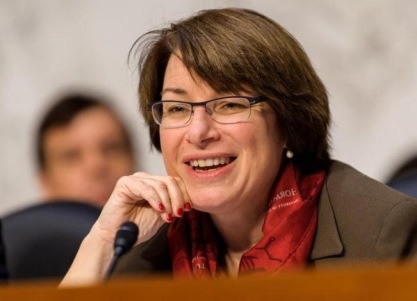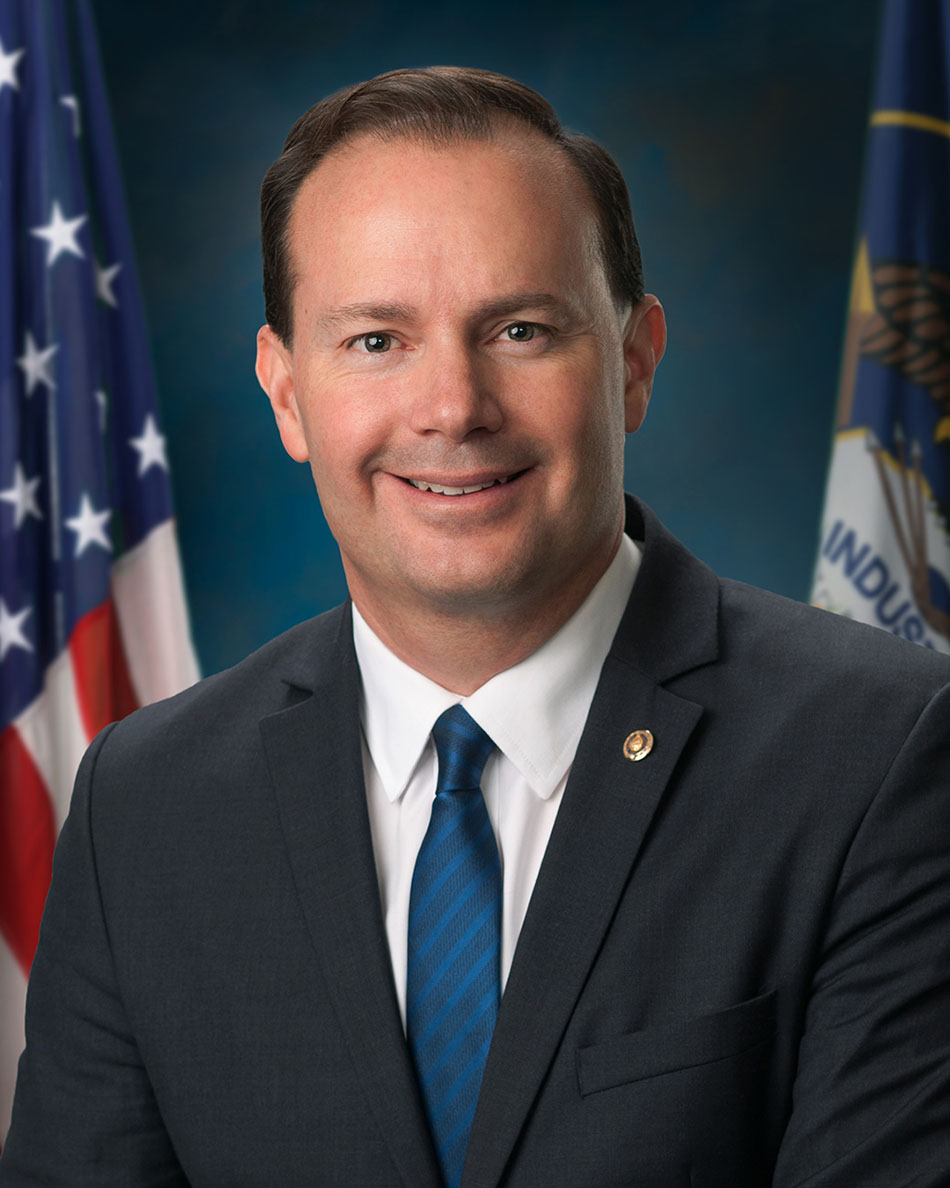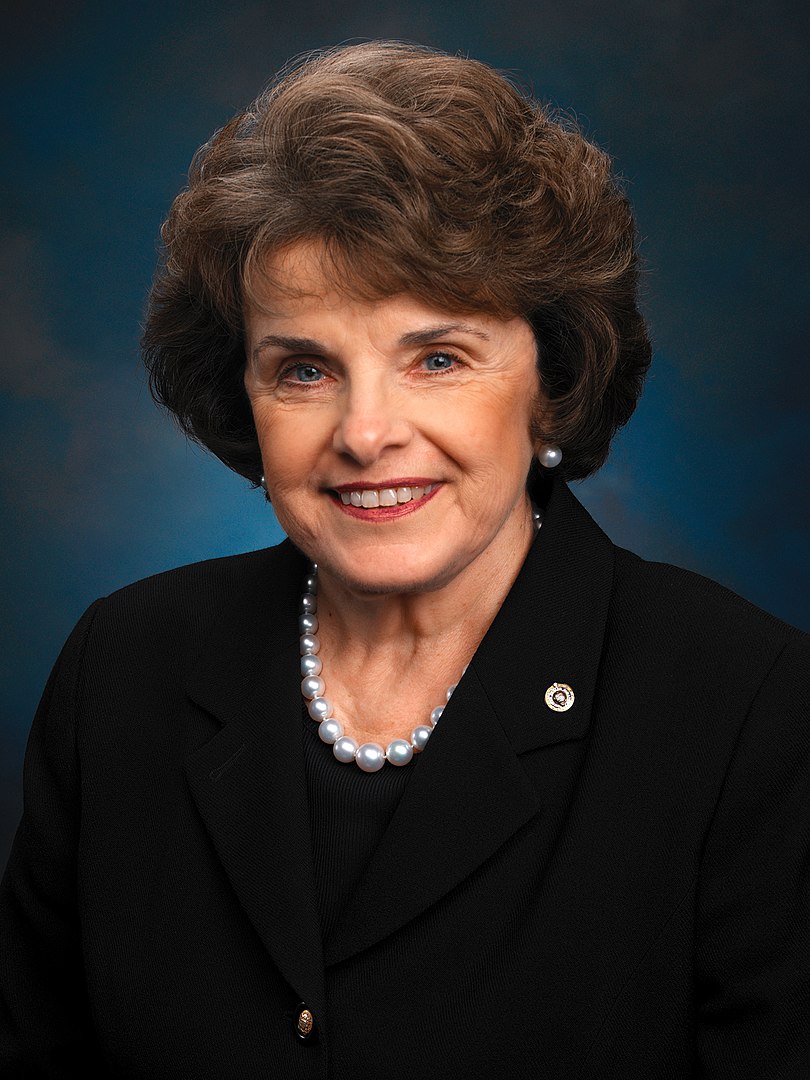Big Tech Antitrust Bill Divides Senate
But Sen. Amy Klobuchar commits to battling ‘standing army’ of monopolists

The smarter way to stay on top of the multichannel video marketplace. Sign up below.
You are now subscribed
Your newsletter sign-up was successful
The Senate has weighed into what was described as an “overgrown standing army” of Big Tech monopolists, with Senate Antitrust Subcommittee chair Amy Klobuchar (D-Minn.) saying to the army of lobbyists that would try to take down a tough new antitrust law under consideration: “Bring it on.”
The bill, the American Innovation and Choice Online Act, is aimed at preventing big online platforms like Apple, Google, Amazon and others from self-favoring conduct that leverages their dominance in search and apps and online commerce to suppress competition. A House version of the bill was also introduced in June, but the Senate version has a number of changes that would have to be reconciled.
Those new parts of the bill include clarifying that some types of “privacy-enhancing conduct” would be permitted, making sure that powerful platforms not publicly traded do not escape the bill’s coverage, and that subscription services like Amazon Prime Video and other streamers were not impacted.
The bill also now requires guidelines to be issued to the business community within nine months and a one-year period for covered platforms to come into compliance.
Klobuchar, a lead sponsor of the bill, said that helped the measure strike the right balance, but the hearing featured much striking out at provisions of the law from both sides.
While the bill did eventually pass out of committee Thursday, there is no guarantee it can achieve the necessary votes in the full Senate.
While attacking Big Tech is one of the few issues that unites Democrats and Republicans, the bill being marked up by the Senate Judiciary Committee was hardly a bipartisan beatdown of the Big Tech pinata. In fact, it appeared to divide not only Democrat from Republican, but Democrat from Democrat.
The smarter way to stay on top of the multichannel video marketplace. Sign up below.
There was disagreement on the content of the bill, the consequences — or unintended consequences — of the bill, and the process that got it to markup on Thursday (January 20).

Sen. Mike Lee (R-Utah), ranking member of the antitrust panel, made it clear the bill was not, in its current form, the way to go. He said he could not support it, and he was not alone.
Democratic Sen. Patrick Leahy (D-Vt.) said he still had issues that needed to be resolved before he could vote for it on the Senate floor.
Sen. Dianne Feinstein (D-Calif.) had big problems with the bill's focus on regulating the behavior of the biggest big tech companies — Apple, Google, Facebook and Amazon — while allowing others to engage in the same conduct. She said it could be a “very dangerous” law that could tip the balance of power toward big foreign firms not covered by the bill.
Feinstein said the bill had major security problems because it required companies to take down protections, a complaint lodged by some Republicans. She said she would oppose the bill and said it should have gotten a full committee hearing.
Lee also said one of his issues was there had been no legislative hearing on the bill. He conceded that it had been “mentioned” on occasion in other Big Tech antitrust hearings, but that did not equate with a legislative hearing on the bill itself.

The hearing featured a testy exchange between Feinstein and Klobuchar, with Klobuchar saying one claim Feinstein made about administration concerns with the bill was “not true.”
Lee asked how much pro-competitive behavior could get caught in the bill and end up with the unintended consequence of removal of popular products and services that helped consumers.
The bill potentially fines violators 15% of a company's total revenue, which Lee said would just line government coffers. He said the penalties were not tied to actual harms, and could just push online platforms to stop working with third parties.
Lee also said he was concerned about giving federal agencies sweeping new power to redefine markets. He said that’s something that has never worked and he didn’t see why it would now.
He raised another hot-button issue. He said deep state bureaucrats should not be given control over Big Tech, and said the bill should address Big Tech censorship, rather than giving the keys over to the Federal Trade Commission to control those companies then use it against Republicans.
Klobuchar said she was shocked by some of the things Lee said and that the hearing — in December — where the bill was raised was hardly perfunctory and the Republicans' own witness supported the bill. Klobuchar said there have been four separate hearings related to the issues the bill addresses.
The American Edge Project has taken out ads on Washington media outlets opposing the bill and claiming it could hurt America's tech edge globally. Klobuchar conceded at the hearing that the bill's supporters did not have the money to take out TV ads showing their support, but were behind it nonetheless.
The bill did unite strange political bedfellows Klobuchar and conservative Josh Hawley (R-Mo.). Hawley said the bill goes “right at competitive conduct." Hawley is one of the biggest Big Tech critics. He disagreed with Lee that the bill could, ironically, strengthen Big Tech, though he agreed with the Big Tech/Big Government alliance and about censoring speech.
Klobuchar warned that there would be attempts to delay the bill with a raft of amendments. Lee took issue with that, saying his amendments were an effort to make the bill better, not kill it.
Sen. Thom Tillis (R-N.C.) said the bill was an overreach and needed more work, but said he would not call for a vote on the 40-plus amendments he had filed. His issues included who was covered, what it meant by making “preferencing” illegal and what the consequences of illegal “preferencing” would be. Another 40-some amendments were also withdrawn, but Klobuchar said she would stay there day and night to finish the markup.
Small Hopes for Compromise
While the bill made it out of committee, it was tough to see how there could be a meeting of the minds on exactly the way forward, particularly with the concerns addressed by many Democrats. Some of those Democrats said they could not vote for the bill in committee, others said they would vote for it, but could not vote for it in the full Senate without changes.
Sen. Ted Cruz (R-Tex.) backed an amendment to allow for individuals to sue Big Tech over violations of the new law, pointing out that support was a reversal from the norm, where Democrats push for private rights of action and Republicans oppose, including himself. But Cruz said Big Tech's conduct was so egregious he was ready to “unleash the trial lawyers.”
Some Democrats argued that the bill unfairly targeted conduct by larger players, but Cruz said that the bill was targeted to the large companies because “they were the monopolists.”
He ultimately withdrew all his amendments, saying he looked forward to working on the issue and would vote for the bill out of committee, but reserved judgment on a full-Senate vote.
Cruz used some of his time on bill discussion to agree with Lee that censorship of conservative speech by Big Tech is “pervasive, pernicious and brazen.” Sen. John Kennedy (R-La.) added that he saw Big Tech as a “killing field” for the truth.
“This bill endangers U.S. digital leadership, and puts consumers’ security and privacy at risk," said Matt Schruers, president of the Computer and Communications Industry Association after the 15-6 vote to report the bill to the full Senate. "Rather than drafting general rules to protect consumers’ welfare, the bill regulates the business models of a handful of companies. This bill is European-style industrial policy, not competition policy.”
Consumer Reports, which got a shout-out during the hearing over its support of the bill, was understandably pleased it made it out of committee.
“The bill will stop the largest online platforms from imposing their self-serving rules on markets and society," said Sumit Sharma, senior researcher for tech competition at Consumer Reports. "The bill will benefit consumers by making it easier to install, choose, and use alternative apps and online services. It will remove the roadblocks that the largest online platforms have put up to hinder innovation by competitors. We will see more innovation as a result of the bill, which will create more choices for consumers.”■
Contributing editor John Eggerton has been an editor and/or writer on media regulation, legislation and policy for over four decades, including covering the FCC, FTC, Congress, the major media trade associations, and the federal courts. In addition to Multichannel News and Broadcasting + Cable, his work has appeared in Radio World, TV Technology, TV Fax, This Week in Consumer Electronics, Variety and the Encyclopedia Britannica.

